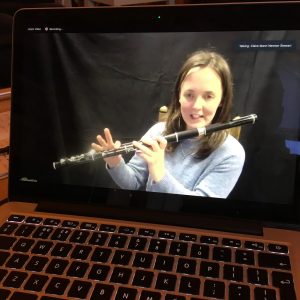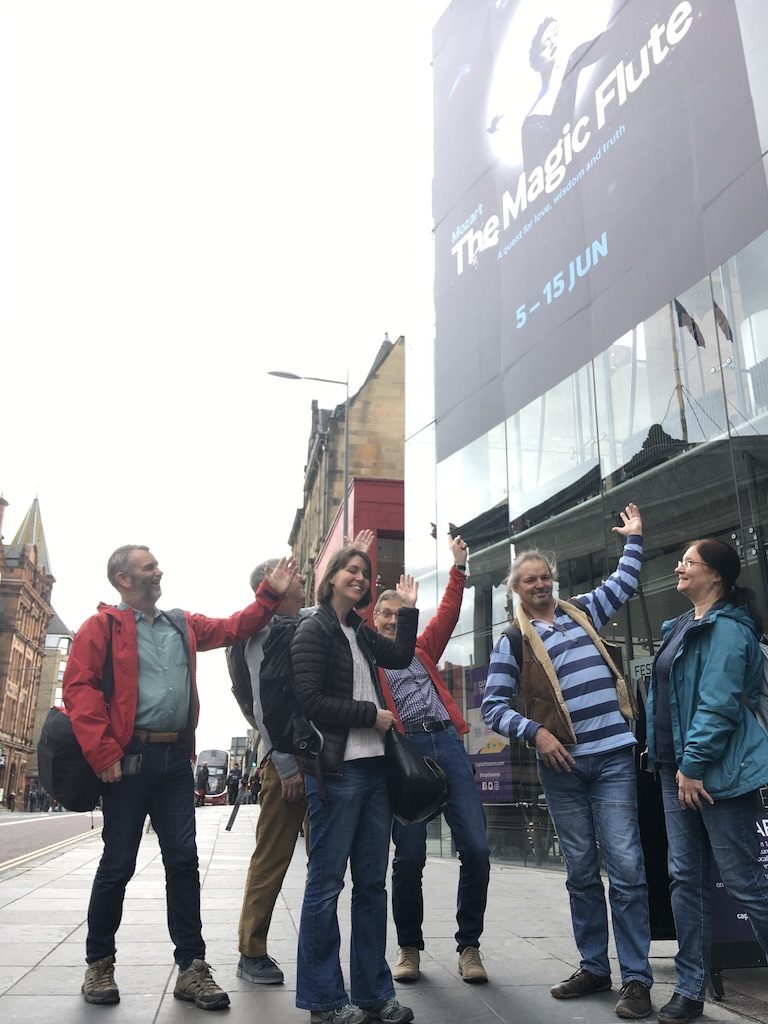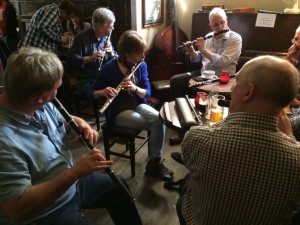FluteFling Online December 2020 Roundup
 It was wonderful to see such a great turn-out for our first ever FluteFling Online event.
It was wonderful to see such a great turn-out for our first ever FluteFling Online event.
Claire Mann took us through some fine tunes over four workshops on two consecutive Saturdays and there is a group recording of everyone playing together to look forward to as well.
Claire herself was in Newton Stewart in Dumfries and Galloway, Pete Saunders did a great job controlling the technology from Aberdeenshire, while Sharon Creasey in Dumbarton, John Crawford in Aberdeen and myself in Edinburgh were also on hand to support. We had much of the country covered and then people attended live from Canada (a 5.30 am start!), USA, Germany, Sweden, France, Ireland, England, the Netherlands, Spain — apologies if I have missed anywhere — and more people accessing it through recordings afterwards, including one person from Japan.
We are already thinking of when we will do our next one, so make sure you are signed up to the newsletter to hear about it first.
Event Resources
The Event Resources archive, including recordings of the workshops themselves, will remain accessible to all ticket holders until 9 January, which is also the date for submitting videos for the group video. Once this is edited it will become available in January.
Most questions were answered either in the workshop or by chat in the messages, which have also been archived in the Event Resources.
Someone new to Scottish traditional music asked for some useful tune collections. It’s something we should maybe address more fully, but here are a few, plus some others:
- Claire had two tunes from The Gunn Collection. You can buy that here:
- thebagpipeshop.co.uk/products/william-gunn-collection
- Or access a free online facsimile here: ceolsean.net/content/Gunn/Gunn_TOC.html
- The Ho-ro-Gheallaidh series (Books 1-4) is very good for Scottish sessions:
- Cruinn Còmhla is a good companion collection:
- Old collections as eBooks:
https://www.scotlandsmusic.com/Category/Fiddle/eBooks/OldCollections - Shetland tunebooks (Start with Ringing Strings):
- https://shop.shetlandtimes.co.uk/collections/music-1
- Hand Me Down Da Fiddle is only available as a PDF facsimile: https://www.scribd.com/document/257331917/hand-me-down-the-fiddle
- A recording of the cassette that accompanies it is here: https://youtu.be/0D7W1tvmKrg
- Nigel Gatherer has produced a number of excellent small collections that support learners in Glasgow and Edinburgh in particular:
- Old collections to look out for include:
- Kerr’s Merrie Melodies for the Violin (4 volumes)
- The Athole Collection
- The Glen Collection
- The Simon Fraser Collection
- The Skye Collection
- A number of notable free PDF facsimiles
- A number of originals are available free on various archive websites, including the National Library of Scotland
- John Crawford recommends Traditional Scottish Fiddling by Christine Martin for an introduction to the different fiddle styles of Scotland that flute and whistle players have to play alongside. https://www.scotlandsmusic.com/Product/SM-9O8H1D/traditional-scottish-fiddling-with-cd
- Many of these links go to scotlandsmusic.com, which is the website for Taigh na Teud music publishers on the Isle of Skye, the biggest in the country. Many of their other publications are worth considering, particularly the Ceol na Fidhle – Highland Tunes for Fiddle series.
- You may wish to explore Tobar an Dualchais/ Kist o’ Riches website, which is a comprehensive archive of music and song field recordings from The University of Edinburgh, BBC Scotland and the National Trust for Scotland: http://tobarandualchais.co.uk/en/
- Elizabeth Ford has written the only account of the history of the flute in Scotland, which was published in 2020. It is highly recommended and is available in full book form here: https://www.peterlang.com/view/title/69223 or as an academic PhD thesis PDF here: http://theses.gla.ac.uk/7351/






